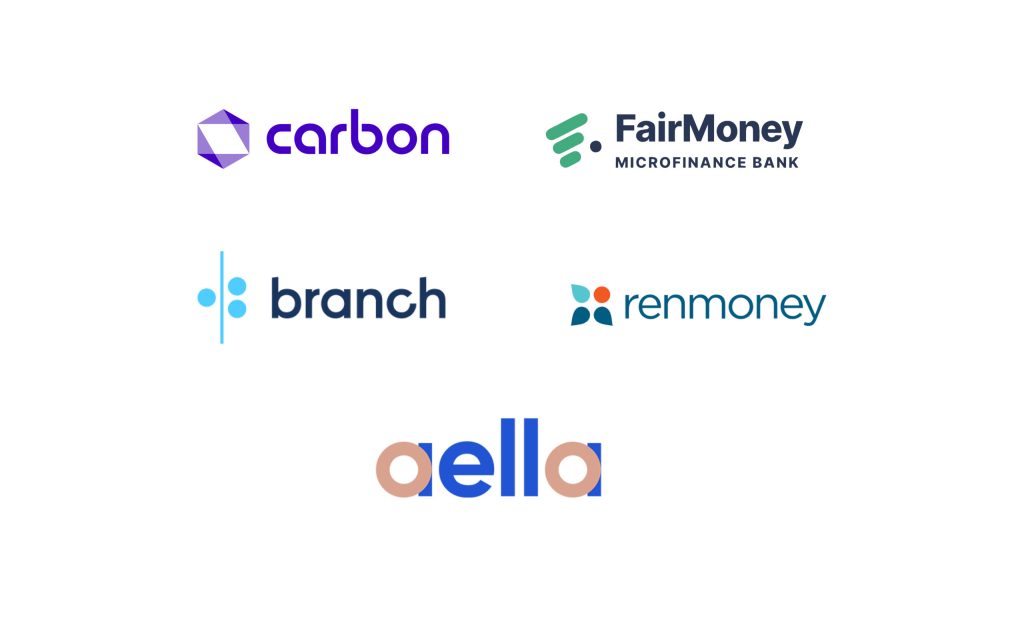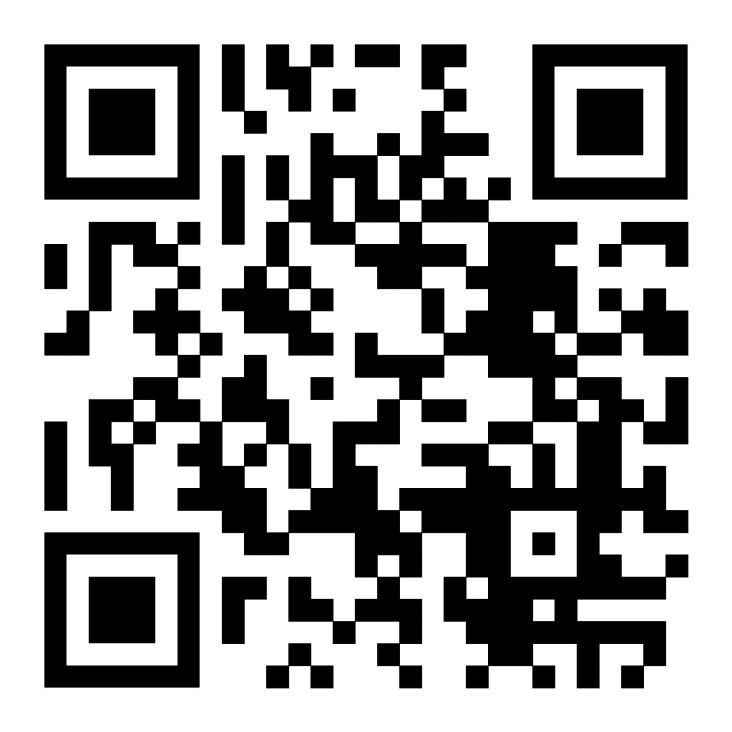Loan application varies with the loan type (short-term and long-term) and the amount you want from banks. Every bank in Nigeria offers a loan product that enables its customers to lend money from the bank while repaying the funds (loan) over a specified period.
This loan product is mainly familiar to commercial banks in Nigeria (Access Bank, Zenith Bank, GTBank, Stanbic IBTC Bank, First Bank of Nigeria, etc.). However, you can also access loans on digital banks (Mintyn Bank, Kuda, etc.) and other financial institutions. So accessing a loan poses little difficulty to achieve as a proliferation of financial institutions, including microfinance banks, are providing the product.
Applying for loans from banks in Nigeria is similar to the operation of banks in other climes—loan works concerning the principal, interest rate, and time. The principal is the primary amount of money you want the bank to borrow at a particular interest rate over a certain period.
For instance, if you want the bank to lend you N200,000, the interest rate for banks in Nigeria is 17.5%. Therefore, you will pay 17.5% of the N200,000, which will be spread across a specific time frame, four months, six months, or a year, depending on its availability by the bank. Also, this rate and time can vary with banks, as other financial institutions aside commercial banks tend to bend the interest rate in such a way that it is simple for the loaner.
This article thus highlights the possible requirements for accessing loans from banks in Nigeria.
First, let us show you the different categories of financial institutions in Nigeria that are being supervised by the Central Bank of Nigeria, some of which you and I are pretty familiar with, others, you probably never heard of.
Table 1 below highlights the different major financial institutions we have
Tables 2,3,4,5,6,7,8,9,10,11, and 12 break down the financial institutions into their different sub-banks.
Major Financial Institutions
Table 1: Financial Institutions
| S/N | FINANCIAL INSTITUTIONS |
| 1. | Bureaux-de-Change (BDCs) |
| 2. | Commercial Banks |
| 3. | Development Finance Institutions (DFI’s) |
| 4. | Discount Houses |
| 5. | Finance Companies (FCs) |
| 6. | Holding Company (HCs) |
| 7. | Merchant Banks |
| 8. | Micro-finance Banks (MFBs) |
| 9. | Non-Interest Banks |
| 10. | Primary Mortgage Banks (PMBs) |
| 11. | Payment Service Banks (PSBs) |
Commercial Banks
Table 2: Commercial Banks
| S/N | COMMERCIAL BANKS |
| 1. | Access Bank Plc |
| 2. | Citibank Nigeria Limited |
| 3. | Ecobank Nigeria Plc |
| 4. | Fidelity Bank Plc |
| 5. | First Bank Nigeria Limited |
| 6. | First City Monument Bank Plc |
| 7. | Globus Bank Limited |
| 8. | Guaranty Trust Bank Plc |
| 9. | Heritage Banking Company Ltd |
| 10. | Keystone Bank Limited |
| 11. | Polaris Bank Plc |
| 12. | Premium Trust Bank |
| 13. | Providus Bank |
| 14. | Stanbic IBTC Bank Plc |
| 15. | Standard Chartered Bank Nigeria Ltd |
| 16. | Sterling Bank Plc |
| 17. | SunTrust Bank Nigeria Limited |
| 18. | Titan Trust Bank Ltd |
| 19. | Union Bank of Nigeria Plc |
| 20. | United Bank For Africa Plc |
| 21. | Unity Bank Plc |
| 22. | Wema Bank Plc |
| 23. | Zenith Bank Plc |
| 24. | Parallex Bank Ltd |
Merchant Banks
Table 3: Merchant Banks
| S/N | MERCHANT BANKS |
| 1. | Coronation Merchant Bank |
| 2. | FBN Merchant Bank |
| 3. | FSDH Merchant Bank |
| 4. | Greenwich Merchant Bank |
| 5. | Nova Merchant Bank |
| 6. | Rand Merchant Bank |
Bureau-De-Changes in Nigeria
Table 2:
Here is a list of some of the Bureau-De-Changes in Nigeria. There are a lot more that are not listed in this table.
| S/N | BUREAUX-DE-CHANGE (BDCS) |
| 1. | 19th BDC Ltd |
| 2. | 2020 Wise BDC Ltd |
| 3. | 313 Bureau De Change Limited |
| 4. | 6JS BDC Ltd |
| 5. | 8-Twenty Four Bureau de Change Limited |
| 6. | A & C Bureau De Change |
| 7. | A & S Bureau de Change |
| 8. | A & U Buraeu de Change |
| 9. | A AND B BUREAU DE CHANGE LIMITED |
| 10. | A and C Bureau De Change ltd |
| 11. | A Three BDC Ltd |
| 12. | A. A. Boss Bureau de Change Limited |
| 13. | A. Maikore BDC Ltd |
| 14. | 1069 BDC Ltd |
| 15. | A. Three BDC Ltd |
| 16. | A. W. Y. Bureau de Change Ltd |
| 17. | A.A. Lukoro Bureau de Change Limited |
| 18. | A.A. Silla Bureau de Chage |
| 19. | A.A.Rano BDC Ltd |
| 20. | A.B.A. BDC Limited |
Development Finance Institutions (DFI’s)
Table 5: Development Finance Institutions (DFI’s)
| S/N | DEVELOPMENT FINANCE INSTITUTIONS (DFI’S) |
| 1. | Bank of Agriculture (BOA) |
| 2. | BANK OF INDUSTRY |
| 3. | Development Bank of Nigeria Plc |
| 4. | Federal Mortgage Bank Of Nigeria |
| 5. | Nigeria Export Import Bank |
| 6. | The Infrastructure Bank |
Discount Houses
Table 6: Discount Houses
| S/N | DISCOUNT HOUSES |
| 1. | Associated Discount House Ltd. |
| 2. | Consolidated Discount Limited |
| 3. | Express Discount Limited |
| 4. | First Securities Discount House Ltd |
| 5. | Kakawa Discount House Ltd |
Finance Companies (FCs)
Table 7: Finance Companies (FCs)
Here is a list of some of the Finance Companies in Nigeria. There are a lot more that are not listed in this table.
| S/N | FINANCE COMPANIES (FCS) |
| 1. | AAA FINANCE & INVESTMENT COMPANY LIMITED |
| 2. | ADDOSSER FINANCE LIMITED |
| 3. | AIQ CAPITAL FINANCE COMPANY LIMITED |
| 4. | ALC FINANCE COMPANY LTD |
| 5. | ALLIANZBRIDGE FINANCE COMPANY LIMITED |
| 6. | AMS FINANCE & MANAGEMENT COMPANY LIMITED |
| 7. | AQUILA LEASING LIMITED |
| 8. | ARKERS FINANCE COMPANY LIMITED |
| 9. | BANCORP FINANCE LIMITED |
| 10. | BERKSHIRE FINANCE COMPANY LIMITED |
| 11. | BRANCH INTERNATIONAL FINANCIAL SERVICES LTD |
| 12. | C & I LEASING PLC |
| 13. | CANDOURCREST FINANCE LIMITED |
| 14. | CAPITALFIELD FINANCIAL MANAGEMENT LIMITED |
| 15. | CAPRI-MARTINS FINANCE LIMITED |
| 16. | CARBON FINANCE AND INVESTMENT LIMITED |
| 17. | CASH-LINK LEASING PLC |
| 18. | CELOX FINANCE & INVESTMENT LIMITED |
| 19. | CEVIANT FINANCE LIMITED |
| 20. | CFS Financial Services Limited |
Holding Company (HCs)
Table 8: Holding Company (HCs)
| S/N | HOLDING COMPANY (HCS) |
| 1. | ACCESS HOLDINGS PLC |
| 2. | FBN HOLDINGS PLC |
| 3. | FCMB GROUP PLC |
| 4. | FSDH HOLDING COMPANY |
| 5. | GTB HOLD CO |
| 6. | STANBIC IBTC HOLDINGS PLC |
Micro-finance Banks (MFBs)
Table 9: Micro-finance Banks (MFBs)
Here is a list of some of the Micro-Finance Banks in Nigeria. There are a lot more that are not listed in this table.
| S/N | MICRO-FINANCE BANKS (MFBS) |
| 1. | AACB Microfinance Bank Limited |
| 2. | AB Microfinance Bank Limited |
| 3. | ABC Microfinance Bank Limited |
| 4. | Abestone Microfinance Bank |
| 5. | Abia SME Microfinance Bank |
| 6. | Abia State University Microfinance Bank Limited |
| 7. | Abigi Microfinance Bank Limited |
| 8. | Above Only Microfinance Bank |
| 9. | Abubakar Tafawa Balewa University (ATBU) Microfinance Bank |
| 10. | Abucoop Microfinance Bank Limited |
| 11. | Abulesoro Microfinance Bank |
| 12. | Accion Microfinance Bank Limited |
| 13. | ACE Microfinance Bank Limited |
| 14. | Achina Microfinance Bank Limited |
| 15. | Active Point Microfinance Bank Limited |
| 16. | ADA Microfinance Bank Limited |
| 17. | Adazi-Enu Microfinance Bank Limited |
| 18. | Adazi-Nnukwu Microfinance Bank Limited |
| 19. | Addosser Microfinance Bank Limited |
| 20. | Adeyemi College Staff Microfinance Bank |
Non-Interest Banks
Table 10: Non-Interest Banks
| S/N | NON-INTEREST BANKS |
| 1. | JAIZ BANK PLC |
| 2. | LOTUS BANK LTD |
| 3. | TAJ |
Primary Mortgage Banks (PMBs)
Table 11: Primary Mortgage Banks (PMBs)
Here is a list of some of the Primary Mortgage Banks in Nigeria. There are a lot more that are not listed in this table.
| S/N | PRIMARY MORTGAGE BANKS (PMBS) |
| 1. | ABBEY MORTGAGE BANK |
| 2. | AG HOMES |
| 3. | AKWA SAVINGS |
| 4. | ASO SAVINGS & LOANS |
| 5. | BRENT (SKYFIELD) SAVINGS |
| 6. | CENTAGE SAVINGS & LOANS |
| 7. | CITY CODE |
| 8. | COOP SAVINGS & LOANS |
| 9. | DELTA MORTGAGE FINANCE |
| 10. | FBN MORTGAGES |
| 11. | FHA HOMES LTD |
| 12. | FIRST GENERATION HOMES |
| 13. | GATEWAY SAVINGS |
| 14. | GLOBAL TRUST |
| 15. | HAGGAI MORTGAGE BANK |
| 16. | HOME-BASE MORTGAGE |
| 17. | IMPERIAL HOMES |
| 18. | INFINITY TRUST |
| 19. | JIGAWA SAVINGS & LOANS |
| 20. | JUBILEE-LIFE MORTGAGE BANK |
Payment Service Banks (PSBs)
Table 12: Payment Service Banks (PSBs)
| S/N | PAYMENT SERVICE BANKS (PSBS) |
| 1. | 9 PSB Ltd |
| 2. | Hope PSB Ltd |
| 3. | Moneymaster PSB Ltd |
Requirements To Access Loans From Banks In Nigeria
1. Purpose Of Loan
Even though some banks do not have not safe limits, the majority will want to know how you intend to use the money. For instance, some individuals or businesses encounter pushback from banks when they request a loan to pay off debt already owed. This may be due to your inconsistency in paying back your loan to the bank.
Some Nigerian banks have a strict policy of providing evidence that you need money for a particular cost. In contrast, other banks can approve loans to businesses for reasons like:
- Buy equipment
- Payroll
- Project management and expansion
- Cash flow improvement
But you may consider getting a loan from an online lender if you want to avoid divulging your intention to get a loan to banks. You can access different loan providers on the internet with reasonable rates and without many requirements.
2. Personal Information
This is one of the essential requirements for getting a loan from banks in Nigeria. Your personal information identifies you and gives the bank an overview of your personality. It is possible for you to only qualify for a loan if you have a tainted identity in the likes of loan defaulting, double identity, and whatnot.
Some of the personal information that you will need to provide the bank for your loan application are:
- Financial statements
- Tax returns
- Bank Verification Number (BVN)
- Addresses
- Assets
3. Financial Statements
Your financial statements are essential for your loan application, especially if you are a business entity that wants a loan to run your business. For an individual applying for loans from banks in Nigeria, you may also be required to provide your account statement across a certain period (mainly in the last six months) to ascertain how active the account is in terms of receiving a significant amount of money.
How your account statement works is that reviewing the number of transactions on your account determines how much of a loan you can qualify for. For someone with a salary account that receives N100,000 every month, the owner of this account may only be prepared for about an N50,000 loan.
Therefore, your financial statement determines the amount of loan you can get depending on your account. Some of the financial statements for businesses are:
- Cash flow statements
- Income statements
- Corporate bank account balances
- Profit and loss statements
4. Collateral
Collateral, according to banks, is any real estate or other assets you pledge as security for a loan. The bank will compare the value of the collateral to the loan you want to apply for. Larger loans often require structural collateral from banks, like a house or office.
Banks will then take inventory and equipment into account when evaluating corporate collateral. Other collateral pieces are expensive jewelleries, automobiles or memorabilia of great value. Your collateral’s anticipated useful life must correspond to the term of the business loan. Collateral is about giving something of great worth in exchange for your loan.
For instance, if you take an auto loan as an individual, you can use your vehicle as collateral if you cannot repay the loan.
Meanwhile, providing collateral before accessing a loan differs from the standard norm of loan application in Nigerian banks; the advent of BVN into the Nigerian financial space has rewired how and when people can repay loans. BVN is a unique number assigned to every bank account holder as a means of identity. So regardless of the number of bank accounts you have with different banks, you can only have a single BVN.
Here, every lending bank or financial institution requests your BVN as a requirement to access their loans. This enables the banks to run a background check on whether you have not defaulted on loan repayment with another bank. If you have, you can not qualify for another loan with the same or other banks until you settle your recurring loan(s).
Therefore, loan defaulters can no longer eat their cake and have it by jumping ships of banks because they do not want to pay back their loans.
5. Credit History
Your credit history can also be pivotal in your chances of getting a loan from banks in Nigeria. Although the advent of BVN has been a panacea to many glitches in the country’s financial sector, banks are not deterred from considering every loan applicant’s credit history before approval.
You may only get your loan approved if you have a good credit history. So it is essential to have a healthy relationship with your lending by paying your loan as and when due to having a good credit score.
Conclusion
The days of filling loads of papers are gone as you can access loans from banks in Nigeria with easy steps upon meeting their requirements—these range from providing accurate personal information to having a good credit history that may portend loan qualification.
With such vast knowledge of the different financial institutions that we have in our country Nigeria, it is essential to carefully peruse the terms and conditions of any preferred lending bank regarding repayment to understand how it works and what is expected of you across your loan period.








